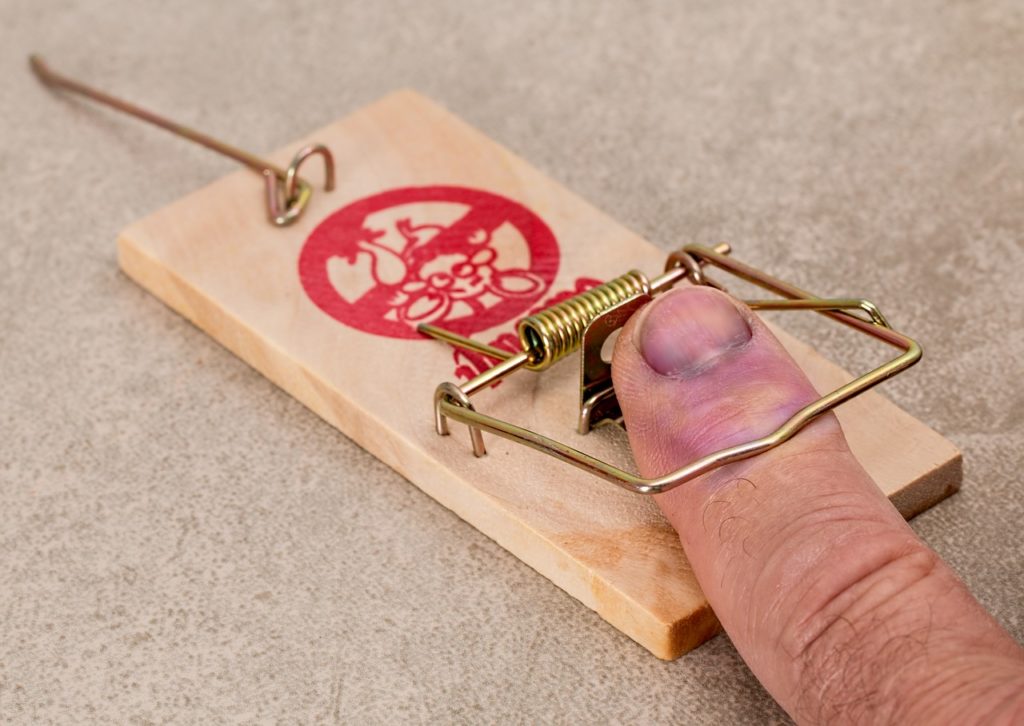Rats can thrive in any part of your home. But these pests seem to thrive particularly well in specific areas of your property – like the garage. Rats in garages can be a real problem and are a potential health hazard. Luckily, there is something you can do! Here is our ultimate guide to rats in garages and how to get rid of these pests.
Why your garage is vulnerable to rat infestations
Rats can be found in garages because these parts of the home are very accessible. They are directly connected to the home’s exterior where rats thrive. They also often have big doors serving as easy passageways for these pests. And rats are attracted to garages because there are a lot of things to eat and drink in them.
- It is near your garden, lawn, and yard. Rats can thrive outside your home. They can thrive in your garden because it has fruits and vegetables. And they can thrive in your lawn and yard because it has craters with stagnant water and bushes where they can take shelter. Since your garage is near these areas, it’s vulnerable to rat infiltration.
- It has a big door. Generally, garage doors are way bigger than the other doors, windows, and other potential passageways in your home. Remember that rats are very smart. They can infiltrate your home even through the cracks and holes on your walls. Big garage doors are not a problem for them, especially if the doors have structural damage where they can squeeze through.
- It is filled with resources. Some people store food and water in their garage. If you are one of these people, you are not doing yourself any favors. Pests are attracted to homes primarily because of food and water. If they find these resources in your garage, it is at risk of an infestation. Garages also have the tendency to contain cardboard boxes, wires, and other potential nesting spots and gnawing victims.

Signs of rats in your garage
You won’t often see rats out in the open, especially during the day. But there are a lot of signs you can look for to know if you truly have rats in your garage.
- Live or dead rats. Seeing rats, whether dead or alive, is the strongest sign that you are suffering from a rat infestation. Be proactive and take steps to get rid of the infestation immediately.
- Rat droppings and urine. Of course, rats need to urinate and defecate, and they are not particularly industrious in cleaning after themselves. If you see rat droppings and urine, clean them immediately. They are health risks, especially when you accidentally consume something with them.
- Gnawed structures and items. Rats don’t just gnaw on edible food. They can also gnaw on cardboard boxes, wires, and practically anything in your garage. This can be problematic because they can ruin your car and even cause house fires through the exposed wires.
- Noises in the dark. Rats can nest in cardboard boxes, dark corners, insulations, walls, and other areas where you won’t immediately see them. But you may be able to hear them scratching, gnawing, and making random noises.
- Footprints and smear marks. Sure, rats in garages may practically be invisible, but their tracks are not. Look for their footprints and smear marks on your walls, especially on corners. These pests are greasy and moist, so they will definitely leave black, brown, or yellow marks behind.
How to get rid of the rats in your garage
Thankfully, rats in garages are not invulnerable. There are ways to effectively get rid of them.
- Call a pest control professional. The best way to get rid of rats, whether they are in garages or any other part of your home, is by getting the help of professionals. They have the knowledge and the tools to eliminate infestations. This also makes you safer from health hazards that may arise from dealing with rat infestations yourself.
- Use pesticides. There are a lot of commercially available pesticides for rats. But make sure you are actually using the ones specifically formulated for these pests. They are often categorized as “rodenticides.” Pesticides that are not specifically formulated for rodents may not be as effective. Also, be careful in using these pesticides, especially if you have children and pets. Always follow the instructions on the labels.
- Use rat traps. One problem with pesticides is that rats tend to hide in the most inaccessible places when they are dying. This may stink up your garage. Luckily, there are commercially available rat traps too that won’t give you the same problem. And you can even make your own rat traps with specific baits to effectively capture the pests.

How to prevent rat infestations in your garage
Preventing rat infestations is key to a rat-free garage. If you don’t prepare preventive measures, your garage will just be re-infested. Here are some of the most effective preventive measures you can try.
- Close all passageways. It may seem obvious to say that rats get into garages and other parts of your home through passageways like doors, windows, and structural damage. But you will be surprised how negligent some people are. Keep all possible passageways closed or sealed.
- Avoid storing food and water. All kinds of pests, not just rats, are attracted to food and water. Don’t store food and water in your garage to avoid attracting these freeloaders. But if it can’t be helped, at least store them properly in containers where they can’t be easily accessed. Glass and metal containers are great because rats won’t be able to easily gnaw on them.
- Keep it clean. If you have a dirty garage, there will be a lot of spots where rats can hide and thrive. If you have no use of those cardboard boxes, throw them away. Cleanliness doesn’t necessarily prevent pest infestations completely, but it does help because it minimizes the number of resources and possible nesting spots in your home.
Get rid of the rats in your garage now
Rats can easily thrive in garages because these parts of homes are very accessible. They are also likely to have a lot of resources and hiding spots where rats can excel. Thankfully, the pests are vulnerable to rodenticides, traps, and of course, pest control professionals who know what they are doing.

